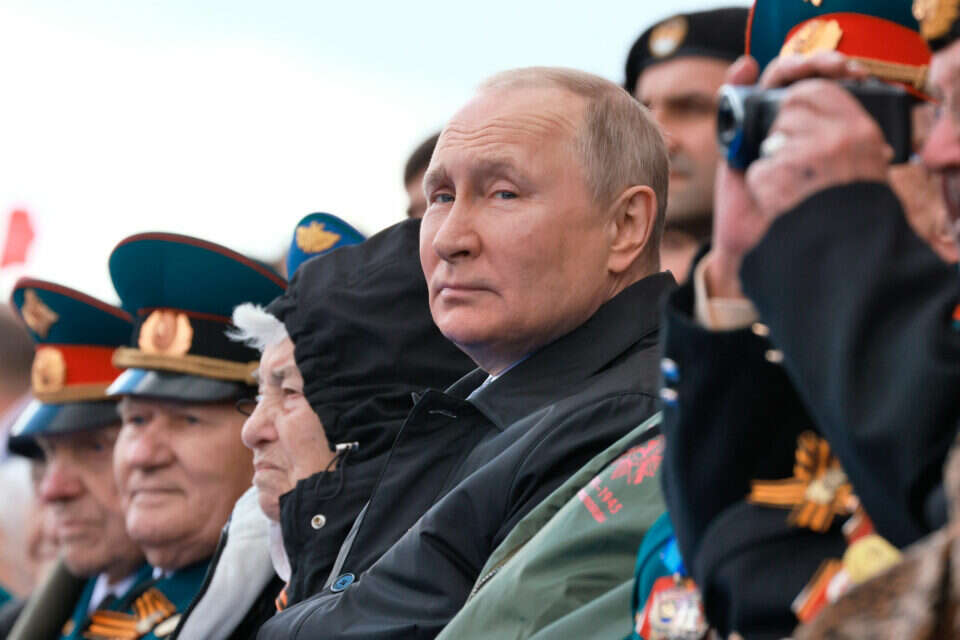The official spokespeople in Moscow tried this week to minimize the threat posed to the functioning of the Jewish Agency in Russia. They claimed that these were "legal matters", a hint that the political and security affairs between the countries are normal as before.
This is of course an exaggeration: the current crisis is initiated, organized and directed from above, just as its predecessors were.
There are indeed elements in it that require clarification regarding the Jewish Agency's understanding of the warnings it received in the past year - and the degree of knowledge and internalization of the political echelon regarding the seriousness of the problem and the urgency of dealing with it - but even if all of these were managed and handled perfectly, the crisis would have occurred around this matter, or another .
Russia has an interest in the crisis with Israel, for its own reasons.
Anyone who wants to blame this on the (correct) statements of Prime Minister Yair Lapid (when he was Foreign Minister) regarding the war in Ukraine, does so at his own risk.
Lapid is responsible for destroying the relationship just as much as Benjamin Netanyahu is responsible for building it, in other words - the responsibility of both is very limited;
Moscow acts according to its interests, and its own only.
Anti-friction mechanism
Russia has never been on Israel's side.
Not really, not even a little.
On the other hand, she was almost always on the side of Israel's opponents.
Historically, of course, during the Cold War (and after it, until the fall of the Iron Curtain), but also in recent decades.
Russia has often vetoed anti-Iranian or anti-Syrian resolutions in the UN Security Council, and on the other hand has unhesitatingly sided with anti-Israel resolutions.
Russia also does not support Israel in any way.
Not in money, not in means of warfare, not in operational or intelligence coordination and not in any other matter that does not directly serve its interests.
Therefore, the comparisons made by those who did - including some members of the Knesset whose judgment was probably disturbed by the summer heat - between Moscow and Washington are complete folly, which is dangerous to the security of the country.
Israel is on the side of the US and the West, and that's a good thing. It's not a side without problems - mainly because its values sometimes come at a price - but it's the right side to be on in every possible respect. Anyone who thinks the US has a replacement doesn't understand anything in national security or international relations, and especially does not understand anything about Russia or China.
Israel must maintain as good a relationship as possible with these two, but the chance of them becoming strategic allies of Israel like the US is less than the chance of life being found on Mars.
The only interest that drives Moscow is the Russian one.
That's why she initiated Naama Issachar's arrest at the time, and then released her - not without a price.
Israel also knew how to use this relationship to its advantage;
The locating of Zakaria Baumel's bones by Russian soldiers in a cemetery in Damascus in 2019, and bringing them for burial in Israel, was a good example of this, and not the only one.
In 2015, when Russia deepened its involvement in the Syrian civil war, the two countries realized that they were on a sure and fast track to a military conflict.
To avoid this, Netanyahu went to Moscow, taking with him the Chief of Staff at the time, Gadi Eisenkot. They met with Putin and Russian Defense Minister Shoigu, and formulated the "mechanism to prevent friction" between the countries (or more precisely: between the armies) that has been operating ever since.
Those who think that the USA has a replacement, do not understand anything about Russia or China. The chance that they will become strategic allies of Israel, similar to the USA - is smaller than the chance that life will be found on Mars
The basis of this mechanism is a direct telephone line that connects the IDF Foreign Relations Division and the Russian Air Force base in Hamimim. Before each Air Force attack, the IDF informs the Russians to make sure they will not be harmed.
In the beginning, the message was given very shortly before the attack and sometimes during it, so that the information would not leak from the Russians to the Syrians and endanger the operation or our planes.
However, after in 2018 a Russian intelligence plane was accidentally shot down by Syrian anti-aircraft fire during an air force attack, Russia took advantage of the opportunity for an initiated crisis in front of Jerusalem and extracted a longer warning time before any attack.
This mechanism prevented quite a bit of friction between the armies, but it did not make Russia do anything in favor of Israel in the northern arena.
Contrary to the estimates that claimed that Russia has an interest (mainly economic) in keeping the Iranians away from Syria, reality proved otherwise;
And contrary to the estimates that believed that Russia would actively help stop the approach of Iran and Hezbollah to the border on the Golan Heights, the Russians did not lift a finger on the issue (even though they promised).
On the other hand, their current rapprochement with Tehran - which was manifested, among other things, in Putin's visit to Tehran last week, and in the tripartite summit he held with the presidents of Iran and Turkey - should be seen in proportion, because it too is intended to serve only Moscow's immediate interests.
Some of them are aimed at poking a finger in the eye of the Americans following President Biden's visit to the region, and most of them are related to the war in Ukraine - from agreements to purchase military equipment to agreements to export oil.
Those who blame all of these on Israeli (or American) policy are advised to once again return to history, and even the not-so-distant one.
At the same time as his meetings with the Israeli political-security elite, Putin met in Moscow with Qasem Soleimani, former commander of the Iranian Revolutionary Guards.
He did this despite an Israeli protest, and even though he knew full well that Soleimani was the source of evil in the Middle East, because he believed that coordination with the Iranians and a certain strengthening of them as a counterweight to Israel served Moscow.
Eyes wide open
Israel has no interest in a confrontation with Russia: after all, it is a superpower.
On the other hand, Russia also has no interest in a confrontation with Israel: it is immersed up to its neck in the war in Ukraine, and it is doubtful that it would want to open another front, unnecessary for it.
Defense Minister Gantz did confirm this week at a Channel 13 conference that a Russian anti-aircraft battery (S-300 model) fired a few weeks ago at Air Force planes during an attack in Syria, but shortly after the incident Russia was quick to clarify (via the Russian military annex in Tel Aviv) Because the shooting was accidental. The IDF tends to believe these things, mainly because the Russians don't really want to see the splendor of their technology, the advanced missile systems, destroyed on Syrian soil by the Air Force, which has been training for this purpose for many years.
Therefore, the reasonable assessment is that the two countries will try to calm the current conflict (probably with the active mediation of the country's president Yitzhak Herzog).
It is possible that on the way to resolving the crisis, Israel will be forced to pay a price in the form of temporary damage to the agency's activities in Russia, but not much beyond that.
In any case, in the current technological age, a significant part of the apostles' work can be carried out remotely, and the State of Israel can also reduce some of the barriers and bureaucracy when it comes to finding out who is Jewish.
But in a broader perspective, Israel would do well - and its current and future leaders would do well - if they did not get confused.
Russia is not an enemy, but it is certainly not a close ally.
Relying on it has already been proven in the past to be a shaky support, and it is not worth trying again.
Unlike the relations with the USA (and with some European countries), when it comes to Russia, Israel should go to sleep with its eyes wide open.
were we wrong
We will fix it!
If you found an error in the article, we would appreciate it if you shared it with us














